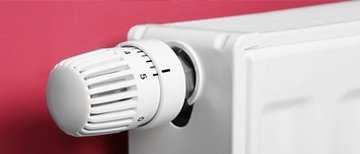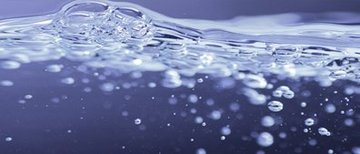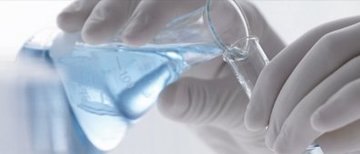Water is not the same as water. For this reason, the filling water of a heating system must be specifically treated. Softening, desalination and efficient filtration technology guarantee optimum protection for boilers and pipelines in addition to the correctly dosed corrosion inhibitors. With innovative technology, we fully exploit the savings potential of your heating system. Heating costs are reduced, the heating system is protected and the service life is extended.
Efficient filtration during operation
With our mobile filter systems for closed water circuits, dirt and sludge can easily be filtered out of the heating water circuit. The units can also be used in the hot water range up to approx. 95 °C and are suitable for off-line filtration. The microbiology is completely filtered out by the ultra-fine filtration and the nutrient is removed for further colony formation. The system then automatically rinses itself clean again. The addition of biocides can be dispensed with. The highlight: The heating water is treated during operation without emptying the circuit water.
Mobile softening and desalination
According to VDI 2035, softened or desalinated water must be used for hot water heating systems depending on the boiler output. A low conductivity of <100 µS is achieved by desalinating the filling water. Corrosion and stone formation thus have no chance.
With our desalination/softening units you can produce soft water or fully salted water directly on site. With the help of the ion exchange principle, you generate the desired water quality for filling the heating system by simply connecting it to the drinking water system. By so-called "Quick Change Tank Systems" the mixed bed resin is completely emptied within 30 seconds.
FAQs Heating protection systems
- Why should a modern heating system be operated with treated heating water?
- Are there standards or regulations that regulate the quality of the heating water?
- What type of water should be used to fill the heating system?
- What needs to be considered when refilling heating water?
- What pH value should the water in the heating system have?
- What is the difference between softening and desalination?

Why should a modern heating system be operated with treated heating water?
The following applies to water treatment in heating systems: no drinking water. Not only the manufacturers say that. This is also prescribed by VDI 2035. The reason is quite simple: drinking water contains numerous components that are harmful to the system components of a heating system. For example, salts and minerals cause limescale deposits and lead to corrosion. This in turn can lead to malfunctions and even failure of system components. Heat transfer is also impaired. System components made of aluminium in particular react very sensitively to the properties of the heating water. Professional water treatment in heating systems is therefore indispensable.
Back to the table of contents

Are there any standards or regulations that regulate the quality of the heating water?
On the one hand, there is VDI 2035, which consists of two parts and defines how damage can be prevented in hot water heating systems. Furthermore, there are corresponding specifications in the assembly and operating instructions of the manufacturers, which are usually based on the guidelines of VDI 2035.
- VDI 2035 Sheet 1:
It regulates the avoidance of stone formation and states in summary: Softened water prevents deposits - VDI 2035 Sheet 2:
It regulates the prevention of corrosion damage and states in summary: Desalinated water reduces conductivity and thus reduces corrosion.

What type of water should be used to fill the heating system?
In the past, only drinking water was needed to fill the heating system. Nowadays, nothing is possible without water treatment. And since each water has considerable regional differences, the correct treatment of the heating water is almost as individual as a fingerprint. Softening or desalination and/or chemical additives. Which procedure is the correct one and which is to be done, if corrosion is already in the system, can in the long run only the specialist decide.
Back to the table of contents
What must be considered when refilling heating water?
It does not always have to be a pipe break for heating water to escape from the closed heating circuit. Venting or minor leaks cause water to be lost from time to time during operation. Refilling the heating water is a case for professionals. Because there is much to consider. On the one hand, the EN 1717 standard for protection against contamination of drinking water regulates exactly what must be observed when connecting a heating system to the drinking water network. On the other hand, the refill water must also be treated accordingly and adapted to the existing total filling quantity. The specialist also checks the heating pressure and ensures that all radiators are optimally supplied with heat after filling. And: In the event of a warranty claim, you can prove the use of suitable heating water.
Back to the table of contents

What pH value should the water in the heating system have?
VDI 2035 stipulates that the guide value for heating water at 25 °C is 8.2, - 10.0 °dH. Most manufacturers give a guide value of 8.5 + 0.5 °dH. Attention: There is a decisive difference between the usual materials copper, grey cast iron and aluminium. This is because aluminium components react to alkaline heating water with considerably more corrosion. Make sure that the pH value here is between 6.5 and 8.5 °dH.
Back to the table of contents
What is the difference between softening and desalination?
VDI 2035 prescribes the prevention of stone formation and corrosion for the treatment of heating water. There are essentially two ways of doing this, depending on the water quality and the manufacturer's specifications: Softening and desalination.
- Softening against lime:
Water softening ensures lime-free operation of heating systems. The water flows through a cartridge with ion exchange resin. The minerals calcium and magnesium are absorbed by the resin and exchanged for sodium ions. The conductivity of the water remains unchanged. The remaining salts remain in the water. When the absorption capacity of the resin is exhausted, the replacement resin is renewed. Advantage: No limescale deposits, little effort, easy handling, low costs.

- Desalination against rust:
Desalination cartridges, on the other hand, completely remove all salts from the filling water. The fully salted water, also known as deionised water, lowers the conductivity and is intended to minimise the corrosion behaviour of the materials. In our experience, however, this only works in the rarest of cases. The prerequisite for a corrosion-free, low-salt operation would be a completely sealed system without any oxygen input. Deionised water reacts extremely corrosively with oxygen. But very few systems have completely sealed valves. For this reason, demineralized water should also be treated.



